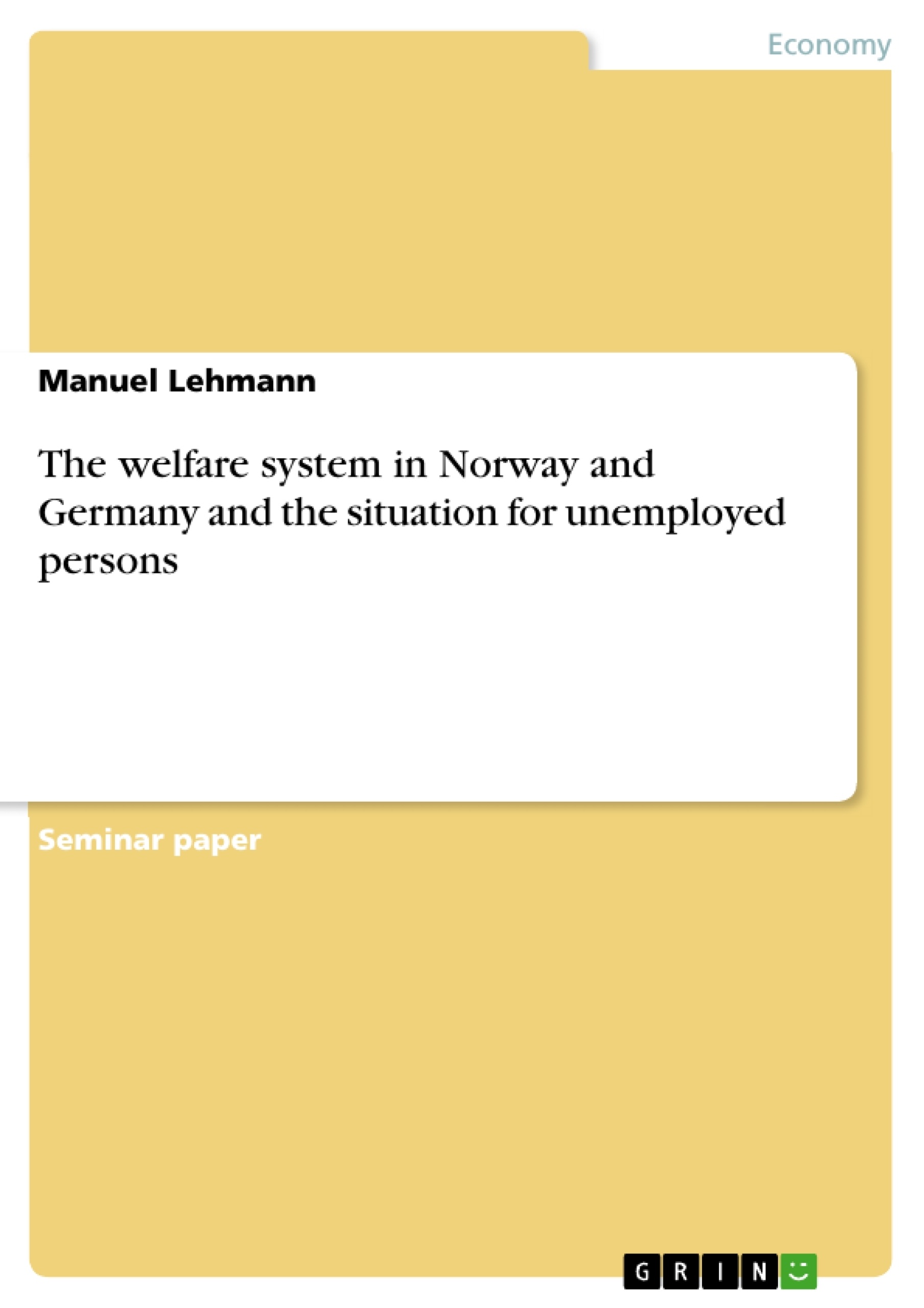Extrait
Structuring
1. Introduction
2. Welfare states in Europe - A classification - according to Gösta Esping-Andersen
a) The Anglo-Saxon, liberal type
b) The continental-European, conservative type
c) The Scandinavian, social democratic type
d) Criticisms to this classification
3. Norway
a) Historical development of the Norwegian social system
b) The situation for unemployed persons
4. Germany
a) Historical development of the German social system
b) The situation for unemployed persons
5. Conclusion
6. Bibliography
1. Introduction
Even in a time as we experience now, where a lot of companies becoming bankrupt, it is more important than ever, to have a look on those people who are directly affected by the economic crisis. These are especially people who lost their job in consequence of cutbacks in manpower or bankruptcy.
It is interesting to see how the European countries are working together to decrease the aftermaths of the present crisis.
In this essay I will analyse in which way the German and the Norwegian Social system works, especially the facilities for unemployed people. And I will try to show the historical and organisational differences of both systems.
In this reason I will give a short overview over the different „welfare regimes“ in Europe first and describe how to classify them into three big groups, according to Gesta Esping-Andersen, who worked a lot in this field of study.
Afterwards I will have a look on the historical and organisational design of the social system of one of the world's richest countries - Norway. In point 3b I will describe how Norway manages the unemployment and what kind of benefits unemployed persons will get.
After that, in point 4, I will examine the case of Germany, as the birthplace of the welfare state in Europe. As I divided the chapter about Norway into one historical part and one part about the benefits for unemployed persons, I did it with this part as well.
At the end of this essay I will make a short conclusion, in which I will discuss the pros and cons of both systems and present, why it is so difficult to find the right balance in the level of unemployment benefits.
2.Welfare states in Europe - A classification - according to Gösta Esping-Andersen
Although the European Countries are growing together more and more, especially the countries of the European Union, does the universal or ideal type of welfare state not exist.
In spite of all similarities are the variations of them highly visible. There are differences between the institutional implementation, the coverage of people, the covered risks, the principles of financing, the beneficiary's legal position, or the proficiency level to name just a few examples.
The way how a state has organised its social system depends for example on the strongness of the political parties or the labour movements. But it depends also on the power, influence and orientation of conservative and liberal political tendencies, churches and much other actors.
Not least it plays a prominent role on which traditions a democracy can access, or which historical experiences like wars or something else a society impressed.
In the classification of countries into different types of welfare organisations plays Gesta Esping-Andersen an important role. He described three kinds of social systems1: 1. The Anglo-Saxon, liberal type, which includes basically for example Great Britain and Ireland, 2. The continental-European, conservative type including France, Germany and Austria and 3. the Scandinavian, social-democratic type with the countries of Norway, Denmark and Sweden.
In the following I will describe these three main types roughly.
[...]
1 ) cp. Bäcker, et al. (2008), P. 49 ff
- Citation du texte
- Manuel Lehmann (Auteur), 2009, The welfare system in Norway and Germany and the situation for unemployed persons, Munich, GRIN Verlag, https://www.grin.com/document/144985
Devenir un auteur






















Commentaires